Whether you already have an air purifier or you are planning to get one for your home, it is vital to have some basic information about it. If you already have the appliance and are actively using it, you must have some questions in your mind. And if you want to buy one for your home, you might want to know about some things to make an informed decision. To make your search for answers easier, we have prepared a list of FAQs about air purifiers. Let’s dive into these FAQs about air purifiers and learn more.
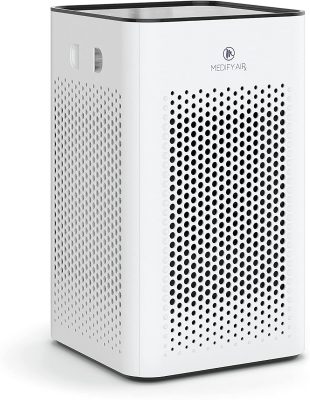
1. Are air purifiers helpful in the removal of mold and mildew?
If you have mold and mildew problems in your home, the solution to completely remove them is to physically clean them. Air purifiers can help you remove the mold spores floating in the air, either generally or after a clean-up. But, air purifiers can not aid you in getting rid of mold from the walls. Air purifiers can lessen the number of mold spores from the indoor air but they can not remove every single spore. Additionally, if you have mold and mildew in your home, you will be required to change the air filters more frequently than usual. So, to prevent yourself from mold issues, you need to physically clean the walls (with bleach or other cleaning substance). Then use the air purifiers to get rid of the spores left behind in the air of your home.
2. Is one air purifier enough to clean an entire house?
Yes, one air purifier is enough to clean the indoor air of an entire home, if you choose the right one. Not all the rooms of your home are equally used, and if you have a portable air purifier, you can move it from one room to another, as per the requirement. The packaging and the manuals of the air purifiers mention the area they can cover with efficiency. Consider all the important factors while buying the best air purifier for your home, and you can save the cost of buying another one.
Following are the bestselling air purifiers recommended for you:
- LEVOIT Air Purifier for Home
- HATHASPACE Air Purifier for Home
- Vremi Premium True HEPA Air Purifier
- Coway Airmega AP-1512HH(W) True HEPA Purifier
- Blueair Blue Pure 211+ Auto Large Area Air Purifier
- Coway Professional Air Purifier for Home
- Philips AC1215/20 Air purifier
- Mi Air Purifier 3 with True HEPA Filter
3. Is it ok to sleep next to an air purifier?
Yes, it is absolutely ok to use an air purifier while using. It has the same effect on health while sleeping as it has when you are awake. Just make sure that it does not blow the air directly to your face, as the air is might feel relatively dry due to the speed.
4. Should I use my air purifier the whole day?
Using your air purifier for the whole day doesn’t have any negative effects. In fact, it helps in maintaining good indoor air quality as the pollutants flow through the air all the time. If you keep the appliance running throughout the day, it will keep removing the air pollutants. Just remember to change or clean the air filters on time to ensure it’s properly working.
5. Do air purifiers make the air dry?
Air purifiers only help in ventilation and cleaning the air. But, if you feel that the air is drier than usual, it may be because of the bigger room or the fast speed of the purifier. Air purifiers do not have any effect on the moisture present in the air inside your home. If the air inside your home feels dry, you can use humidifiers together with the air purifiers.
Following are some bestselling humidifiers for you:
- AquaOasis™ Cool Mist Humidifier
- LEVOIT Humidifiers for Bedroom Large Room
- Everlasting Comfort Cool Mist Humidifier
- raydrop Cool Mist Humidifiers
- Allin Exporters Ultrasonic Cool Mist Humidifier
- Dr Trust Luxury Cool Mist Dolphin Humidifier
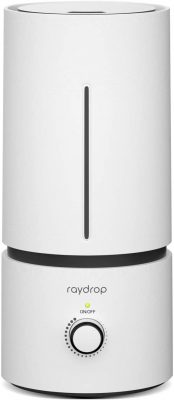
6. Combination of which air filters protect from every air pollutant issue?
The two air filters whose combination protects you from almost every type of air pollutants are HEPA filters and Activated carbon filters. HEPA filters are capable of capturing almost 99% of dust particles that are 0.3 microns or more in size. These dust particles include pet dander, pollen, mold spores, bacteria & viruses, asbestos, smoke, heavy dust, etc. Activated carbon filters are the only air filters that can capture gaseous pollutants. They remove gaseous particles that are inside the home like VOCs as well as the ones coming from outside.
7. Where should the air purifier filters be located: on the front or back?
Whether the air filter is located on the front or the back of the air purifier, it doesn’t have much effect on its efficiency. When the filter is on the front, it pushes the air out whereas the filter on the back pulls the air in. Although it doesn’t affect the functioning of the air purifier, putting the fan in front is usually preferred. The reason behind this is that the front filter supposedly improves the performance and it also protects the fan from dirt being formed upon it. To conclude, the position of the filter on the front or back doesn’t affect the quality of the air you get much. But, the distance of the fan from the air filter does have a little effect on the air purifier’s performance.
8. Is it ok to open windows while using air purifiers?
Yes, it is ok and a bit important to open some windows or doors while using an air purifier, until the air quality outside is too bad. If you open the doors and windows near the air purifier when using it, it can affect the effectiveness a bit. But, completely closing yourself inside will result in an increased concentration of carbon dioxide, which is bad for health. Air purifiers don’t remove carbon dioxide. The best thing to do is to open some doors or windows on the opposite side of your home for better ventilation. Also, if you are cooking or doing any other thing that generates pollutants, open the doors and windows for the pollutants to escape.
9. How much space does an air purifier need?
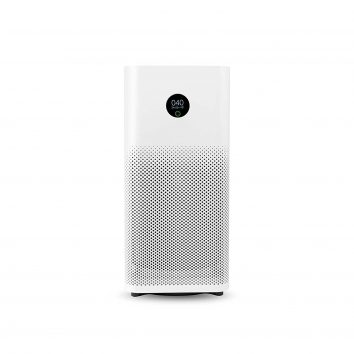
It completely depends on the size of the air purifier you are using. If you are using portable air purifiers, they are relatively small in size and can be placed even on a table or stand. The whole-house air purifiers are usually combined with the AC/ HVAC of your home, so they don’t need extra space.
10. Are air purifiers too noisy?
All air purifiers make some noise while running. However, many air purifiers come with a noise level setting on them, which can be adjusted as per the performance. You can check the level of noise a purifier will make on the packaging or in the user manual of the appliance.
11. What are the different types of air filters used in air purifiers?
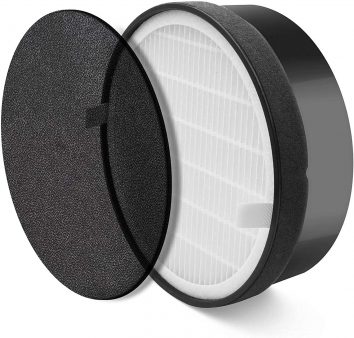
Air purifiers use mainly two types of filters i.e., the main filter and a pre-filter. Besides this, an air purifier filter can also be distinguished into different types based on the material it is made of and its capability. The air filters under this category are HEPA filter, electrostatic filter, pleated filter, spun-glass filter, and UV filter. The same types of air filters are also used in the air conditioners or HVAC systems in the home.
Some recommended air purifier pre-filters:
- Honeywell Premium Odor-Reducing Air Purifier Replacement Pre-Filter
- Honeywell HRF-A300 Air Purifier Pre Kit Filter
- HPA300 Carbon Pre Filter Replacement
- LEVOIT Air Purifier LV-H132-RF Replacement Filter
- VEVA Air Purifier Filter Replacement
12. For how long can an air purifier be used?
Air purifiers can last for as long as 5 years. But, the general lifespan of an air purifier is 3-5 years after the purchase. Also, the lifespan of the air purifier depends on the type of air filter you are using in it.
13. Which air purifier is best for removing pet dander?
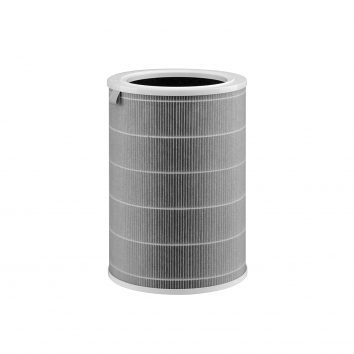
HEPA filters are the best when it comes to getting rid of pet dander from the air inside your home. They are capable of capturing small particles that are usually missed by other types of filters. They can trap particles as small as 0.3 microns and more.
14. Which air purifier is best for people with allergies and asthma issues?
Many types of pollutants can trigger allergies and asthma symptoms such as bacteria viruses, mold, VOCs, smoke, pollen, etc. to get rid of all these allergens, it is better to have a multi-stage filtration system. You can use a HEPA filter as the main filter for the air purifier and an activated carbon filter as a pre-filter. This will ensure the cleanest air for you to breathe inside your home.
15. How do I know that I have bad air quality inside my home?
Indoor air pollution can be caused by the pollutants generated inside the home as well as due to outside pollution. When the indoor air quality starts getting bad, you may notice some small health issues such as throat infection, skin issues, etc. If you have allergies, asthma, or any other respiratory issues, they can also be triggered by bad air quality inside your home. The indoor air will also start smelling musty or stuffy and condensation or mold formation can appear on the walls. You can also get indoor air quality monitors to check how healthy the air inside your home is.
16. What happens if I ignore the indicator light for air filter change?
The filter change indicator light of your air purifier turns on when the filter is dirty enough to change it. If you ignore the indicator and don’t change the filter, the pollutants will start getting mixed in the air inside your home. The indoor air quality will degrade and will increase the risk of health issues. The filter will also be damaged, which will result in damage to the air purifier.
17. Are air purifiers helpful in removing odors?
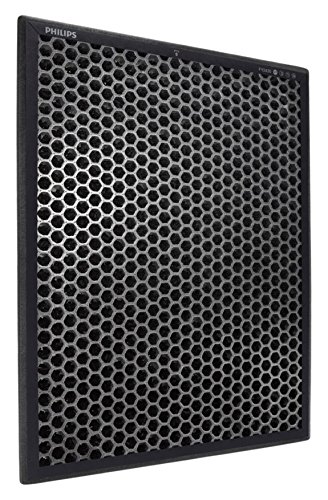
Yes, air purifiers can remove odors but only if you are using the right air filter. Activated carbon air filters are the only filters that trap gaseous pollutants and smell. They can remove odors emanating from food, pets, garbage, smoke, etc. Any other type of filter doesn’t have any effect on odors and can’t remove them from your indoor air.
Some recommended activated carbon air filters for your air purifiers:
- VEVA Air Purifier Filter Replacement
- Cut to Fit Carbon Pad Pre Filter Roll for Air Purifiers
- PUREBURG Carbon Filter
- Breathe Naturally Universal 16×48 Cut-to-Fit Activated Carbon Filter
- Carbon Activated Pre-Filter by Complete Filtration Services
- LEVOIT Air Purifier Replacement Filter
18. Are there any side effects of using an air purifier?
Generally, there are no side effects of using an air purifier in your home. But, some types of air filters may have a little negative side. Air filters like electrostatic air filters and ionizer air filters are said to release a small amount of ozone in the air when they are working. Therefore, it is better to check the product specifications of the air purifier before buying it.
Loading recommendations...

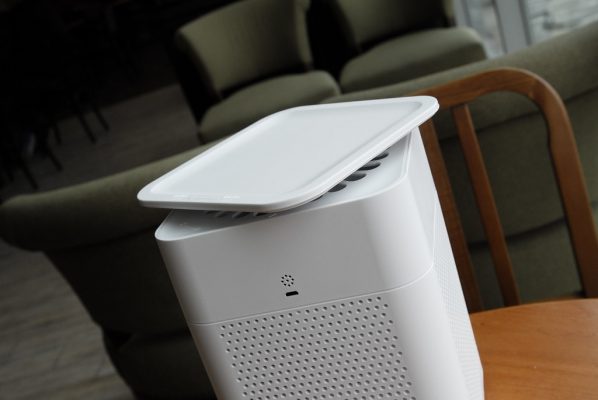
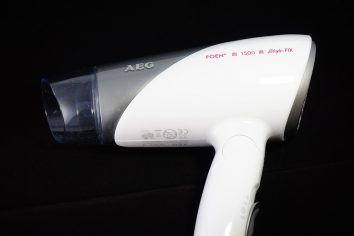
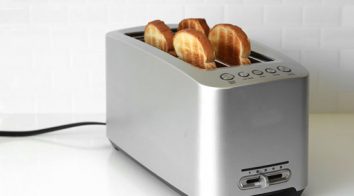
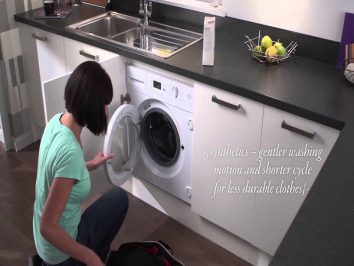
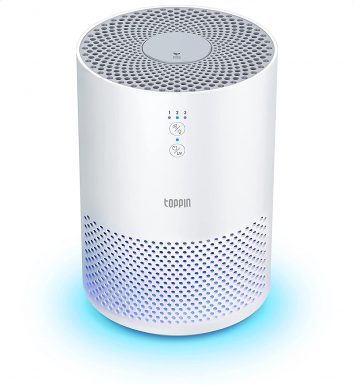
What alternative methods of designing satellites can theoretically be used to solve modern disadvantages, First-Ever Wooden Satellite? The stability and harmlessness of the work of satellites has great potential, which are working on developing companies.
interesting blog, all my questions have been answered in this article of yours electron dash
The air purifier at my house has dirt and dust on the filter, which reduces the ability to filter the air. Smoke and odors are not filtered. How do I clean it, or do I have to take it to the store?
Do you have polluted air inside https://chinesebuffetnearmenow.net/
your home Have you noticed a bad or moldy smell.